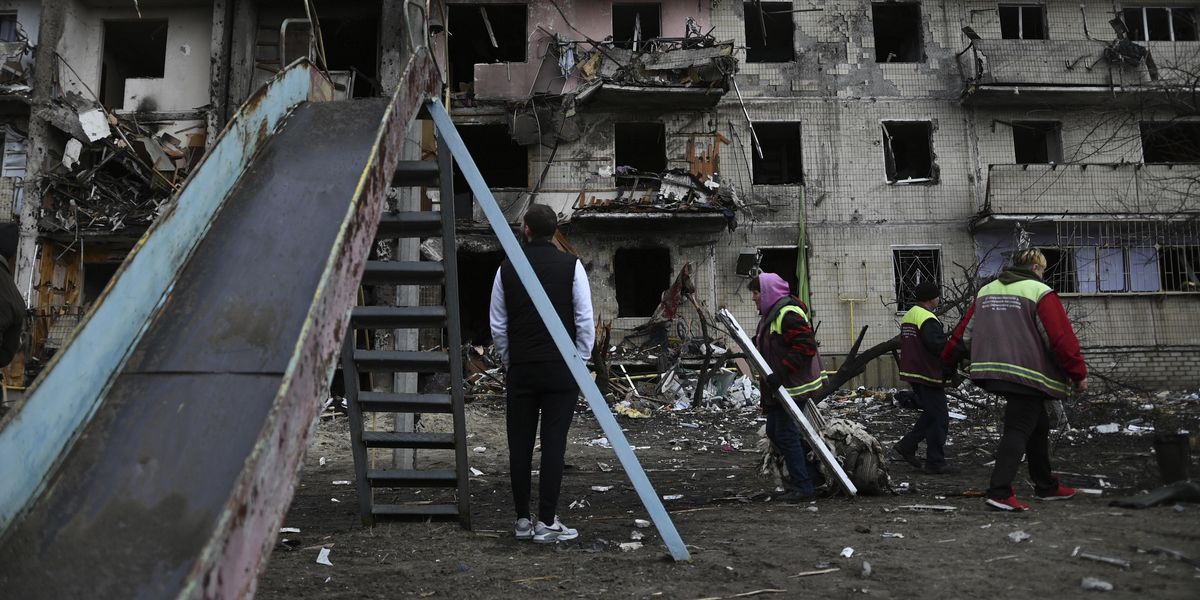

Over the past week, The Institute has made contact with some of the 400 members of the IEEE Ukraine Section to help them share their experiences during the war. This personal account, entitled “Real War,” was written by Hanna Porieva, an associate professor of electrical engineering at the National Technical University of Ukraine “Igor Sikorsky Kyiv Polytechnic Institute” and IEEE volunteer, who was forced to flee Kyiv with her family. “I believe in our victory,” Porieva told The Institute, “therefore I am not afraid to publish my name and photo. I am an ordinary woman who is afraid of the dark on the street and insects, but I am not afraid to tell the whole world that we are at war.”
My name is Hanna Porieva. I am an associate professor in the Department of Electronic Engineering at the National Technical University of Ukraine “Igor Sikorsky Kyiv Polytechnic Institute,” and IEEE Ukraine Section (Kyiv) ED/MTT/EP/COM/SSC Societies Joint Chapter Chairperson. I want to tell you about the situation in Ukraine that I have seen with my own eyes.
24 February 2022, 5:10 a.m. In the morning, as a rule, sleep is strong for me. I dreamed something, I don’t remember what, but I remember that there were explosions in the dream. I wake up and am glad that it was just a dream, but after a few seconds, I hear the distant but powerful sound of an explosion and feel the vibration. I jump out of bed and run to the window. I can’t see anything, but I hear the sounds of planes flying somewhere close—definitely military planes, since this is a very distinctive sound. I live on the 9th floor of a 9-story building that is near the Kyiv International Airport. Previously, I had heard the sounds of such aircraft only during parades in honor of the Independence Day of Ukraine. Then I again hear distant explosions. I stop in the middle of the room and stand like that for probably a minute, not understanding what to do and refusing to believe what is happening. And then my mobile phone rings. It is my brother, who is in the hospital, he was operated on two days before. “Anya, quickly get ready, I will pick up our parents and then pick you up in an hour.” I still do not want to accept reality and stupidly ask: “Why?” My brother shouts in annoyance: “because THIS has begun. Pack your things!”
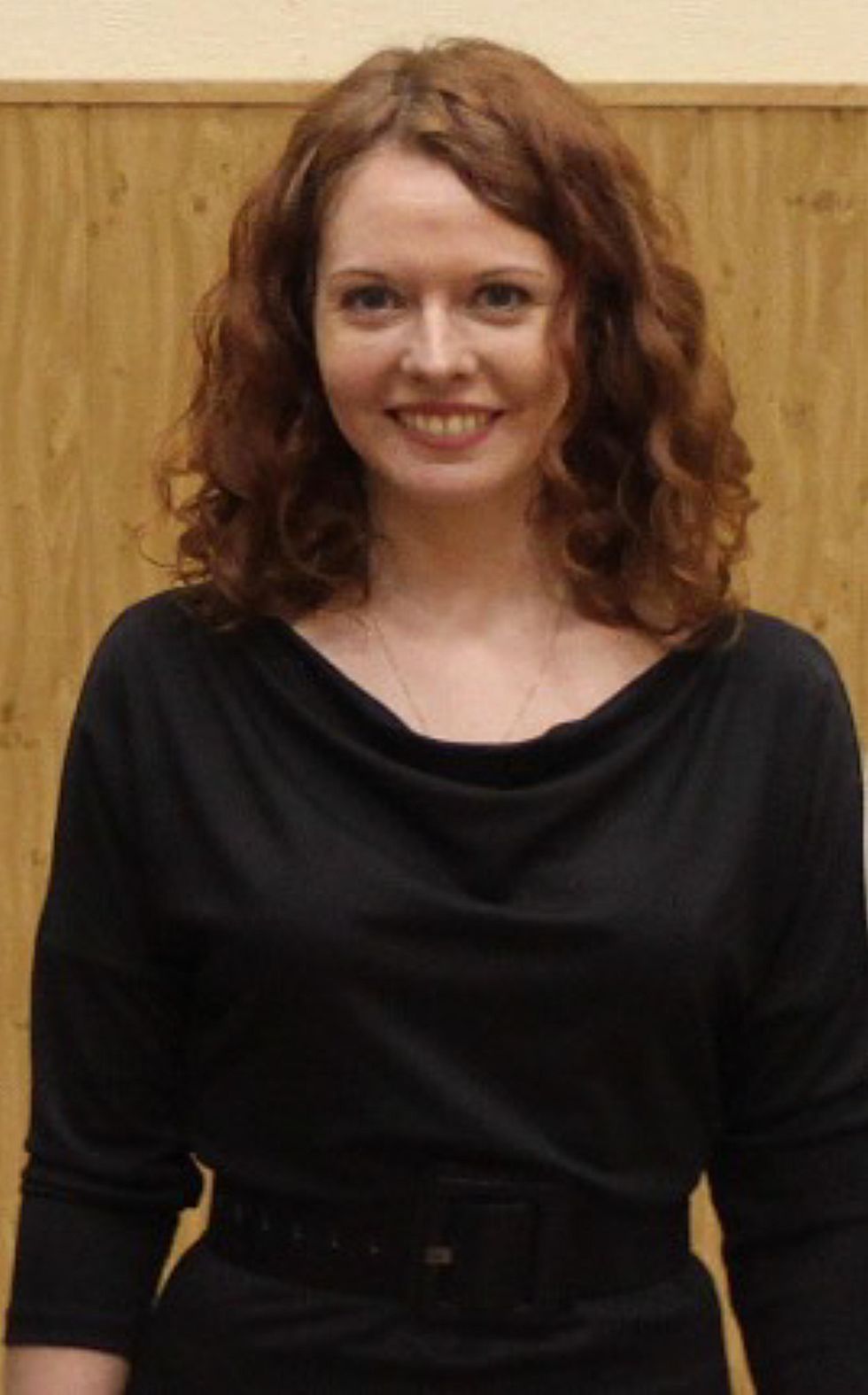
I freeze again. What things to pack? Yes, everyone has been saying for many weeks that you need to be prepared, that there may be a war, that Russia is going to go to war against Ukraine. But it seemed impossible. A full-scale war, especially in Kyiv? Maybe in the east of Ukraine, in the Donetsk and Lugansk regions—it’s been restless there for 8 years, where Russian troops are constantly trying to tear off an even larger piece of Ukraine. But not here, not in Kyiv! Nevertheless, I had packed all my documents and enough money for several days in one bag, just in case. And now as I stand and think about what else to pack, outside the window there is again a booming explosion.
I call my daughter Sonya—she and her boyfriend rent a room on the other side of Kyiv. Sonya says that my brother would pick her up soon, she is getting ready. Thank God! I can hear the neighbors talking anxiously through the wall, their children are crying, which means they are also getting ready to leave. I have to pack. The cat! It’s necessary to pack everything for the cat, this is important. But the main thing is to take a reserve of insulin for my daughter, who has had diabetes for 5 years now. I also have to make the bed so that the house is clean. So I start packing some warm clothes, a little food… And while doing this, I decide that I will not go anywhere. That for these couple of days, I will go to live with my friends, not far away. They have a private house, it’s not as dangerous there as it is here on the 9th floor.
7.00 a.m. My daughter calls and says that they are already approaching, her grandparents (my parents) are with them. I ask her to come into the house and help me carry out my things. My daughter comes in with tears in her eyes. Her boyfriend has decided to stay instead of coming with us, because he feels responsible for his two younger brothers, his mother, and his grandmother. I want to say that I will not go either, but I realize that I cannot say that, my daughter needs me. Since her boyfriend is staying in Kyiv, I can’t stay too. I look at my small apartment, only 40 square meters, but such a cozy home for me. I make sure that I have turned off the electricity everywhere, and I leave, confident that I will return in a couple of days.
I see on the news what the cities around Kyiv have turned into—they are practically destroyed. I see how houses in Kyiv are crumbling and I understand that if my house survives, it will be a miracle.
We travel to a village in the countryside, 150 kilometers from Kyiv. Here we have a small house that my dad built with his own hands. This is a summer house, it’s not adapted to life in cold weather. My parents usually come here in April and leave in September.
The house is not insulated, it can be heated a little by a gas stove. When we arrive, it is the same temperature outside and inside the house: 2 °C. We turn on the stove, and after a few days, it becomes “hot” in the house: 16 °C. The first night we sleep in damp beds wearing all the warm clothes we have, including hats. And we pray every day that the gas pipelines and electricity are not destroyed, especially since the weather forecast for the next ten days is between –9 and –5 °C. I can’t imagine how we will keep warm.
It took us a very long time to drive to this village. Even at 7:00 am, it was almost impossible to leave Kyiv. Many were trying to take their families away. After his operation, it was very difficult for my brother to drive for almost six hours. The doctor at the hospital apparently did not believe that things were this serious, and he did not want to let my brother out of the hospital. But my brother wanted to get us out of the city in time, so he left the hospital without the necessary certificates and medications.
While we were driving, I was thinking about the fact that I had three classes to teach at the university that day, and I must somehow inform my students if I cannot go to classes remotely. Many of my students wrote to me, asking if there would be lessons. Many, like me, did not understand the scale of what was happening. I was also thinking about how I was going to spend today and tomorrow reviewing articles for the ELNANO Conference that we hold every year in April and May. So much to do: lessons, conference, articles, teaching materials for lectures… How am I going to do all that in the village? But I thought I would be there only for three or four days, no more.
And just in November, my colleague Katerina, the vice-head of our chapter, and I were in Spain, where Katerina gave lectures under the Erasmus Program. We traveled, rejoiced, and made new plans. We planned that when the pandemic had ended, we would fly to the meeting of the MTT community in Milan.
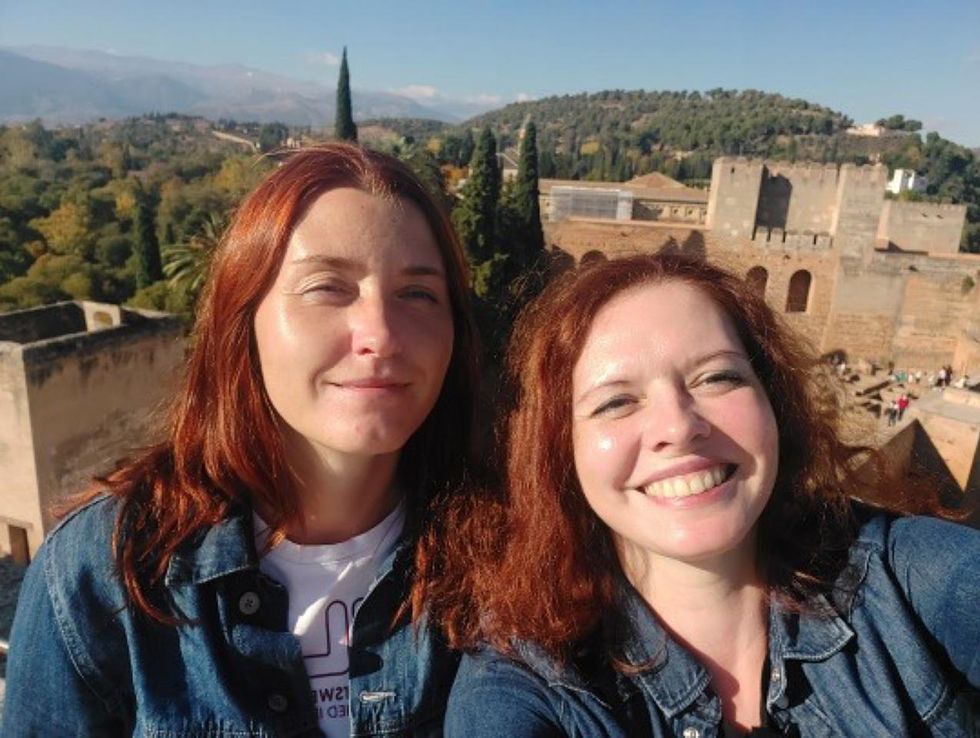
We so love flying to scientific conferences and participating in IEEE meetings in different cities in Europe, and walking around and seeing the sights. But there are practically no airports left in our country, and we don’t know when and where we will be able to fly. Now the challenge for all of us is just to survive.
25 February 2022. My brother’s friends make it to the village. Eight people, four girls and four boys, as well as a cat and a dog. And we also have my cat and my parents’ dog—13 people and four animals living in our small summer cottage. It’s difficult and crowded, but you understand that now is the time when you need to help each other. There is some reserve of cereals and potatoes that my parents grew, so we aren’t starving, but I’m so sorry that I didn’t take more food from my house in Kyiv. There are not enough basic things like butter, flour, meat, eggs, and cheese, and there is nowhere to buy it here. All that we have is our reserve, and we need to take care of it, because how long we will be here, no one knows.
We all watch the news all the time, reading on our phones. From time to time, the boys become sad, and some of the girls cry softly, because one of them is from Energodar, where the largest nuclear power plant in Europe is located, one is from Borodyanka near Kyiv, which was practically razed to the ground, one is from Kharkiv… No comment. And Sonya cries from time to time, worried about her boyfriend who stayed in Kyiv.
The boys want to take the girls to Western Ukraine, where it is safer, but the problem is fuel, it simply is not available. As a result, the boys have to take fuel from one car and put it into another, and then a group of them leave for the city, which is 200 km from us, where they are able to buy more fuel and then return for the others. Then, in one car, the guys make their way to Western Ukraine, find a place where the girls can stay. And now the boys will return to Kyiv to defend their city, to defend Ukraine, and defend the right to be called “Ukrainian,” because if not them, then who?
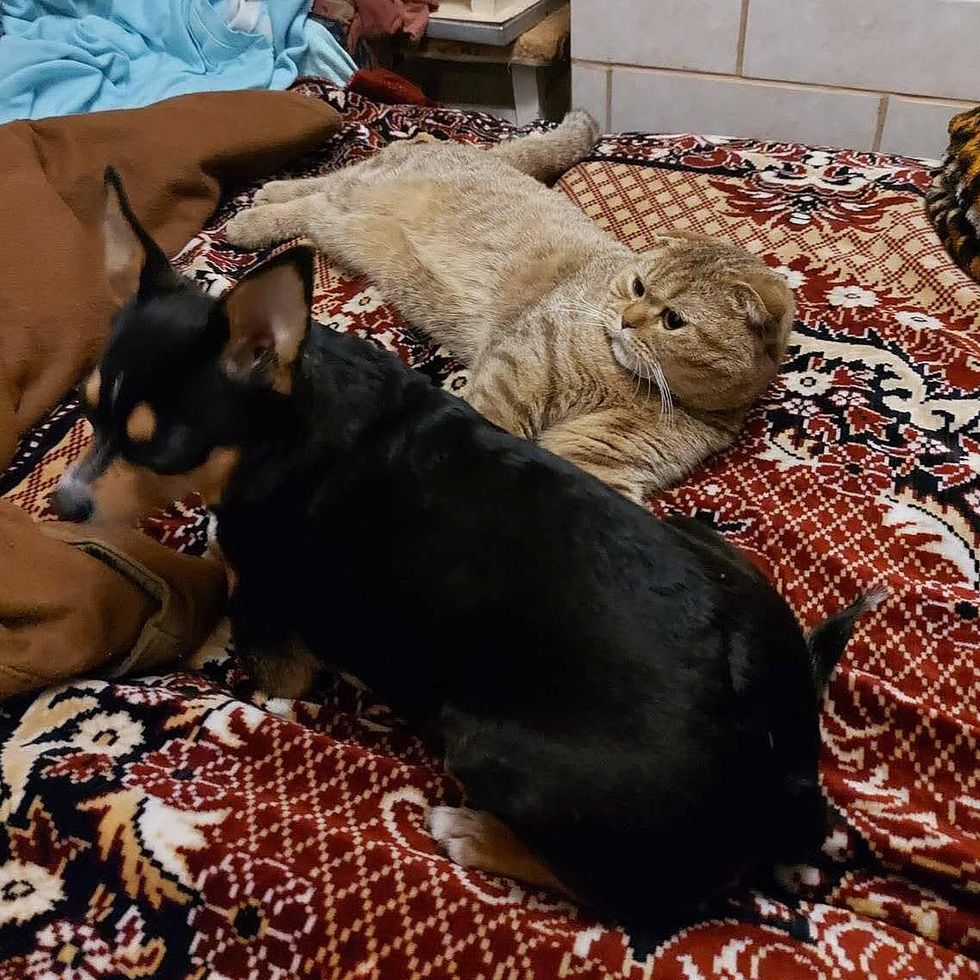
Sonya does not want to leave for the west without her boyfriend. And now I regret that I did not insist. She has a reserve of insulin for another month, or a month and a half. But the situation is worse for glucometer strips and sensors that measure sugar. Even in peacetime in Ukraine, it is not so easy to buy them, and now it’s basically impossible. Without them, we can’t measure her blood sugar levels, which means it’s unclear how much insulin to inject. After many years I got used to the fact that my daughter is now forever with this disease, gradually we learned to live with it. But now I’m scared again. Yes, everyone in Ukraine is scared now, but I am also scared that she will not be able to control her blood sugar. I’d rather not say anything about the consequences.
I am writing this in small parts, because there is something to do all the time. Even the simple things of ordinary life require effort. There is no toilet in the house, no shower, no water. There is sleet and icy wind outside. Cooking, washing dishes, doing the laundry—I do it all with my hands, often in cold water. I keep thinking, why didn’t I bring my creams, shampoos, and balms? My hands are chapped from the cold water, my face is raw, but then I realize that it is a shame to complain about my dirty hair or the toilet outside, when my colleagues, including those from the IEEE, are in Kharkiv or Chernihiv, which the enemy does not spare, but simply destroys. I am writing these words, and there are tears in my eyes and my teeth are clenched from hatred. Why do they do this?
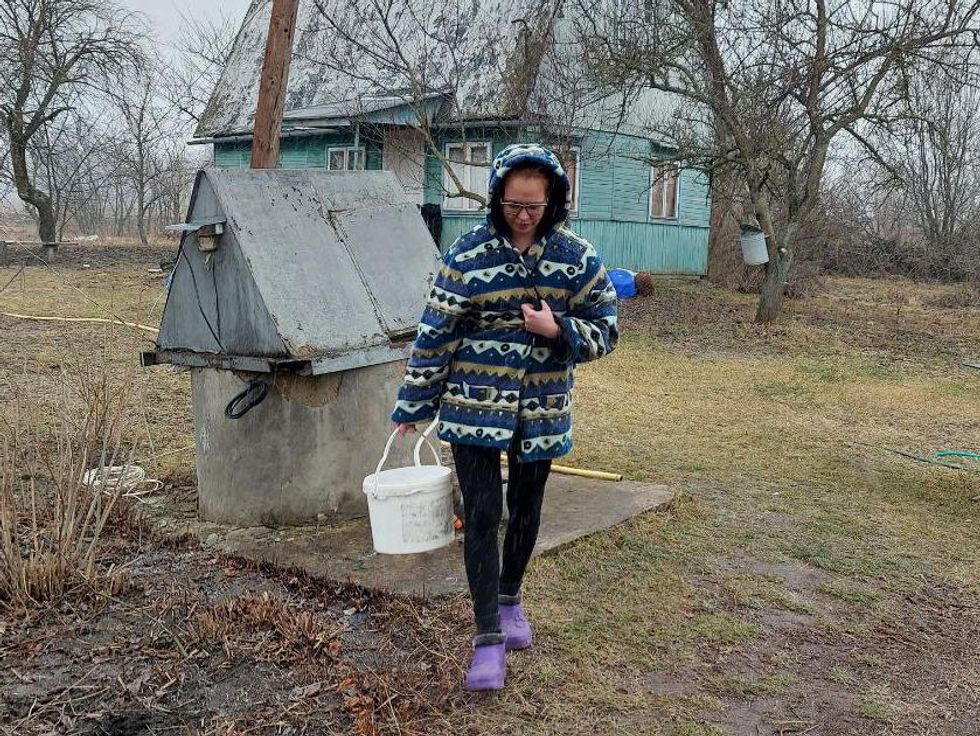
My mother’s sister, who was born and raised in Ukraine, has been living in Moscow for many years. Until 2014, they came to visit us every year, we always welcomed them joyfully and had a good time. After 2014 and the annexation of Crimea, our paths parted. They rejoiced that Crimea was now Russian, and believed that they just had to destroy all the “nationalists” and everything would be fine. What kind of nationalists they had in mind, they could not explain. No one has ever offended them here, we all speak Russian, like them. I had to practically stop communicating with them, I ran out of arguments to make. But my mother still talked a little—after all, they are sisters. And so when we came here, to the village, my mother’s sister began to call my mother and say that Russia wished us well, so we should not be afraid, no one will touch civilians, only nationalists and military bases will be destroyed, and that they are praying for an end to the internecine war in Ukraine. What hypocrisy! They are praying? When my mother began to say that bombs were falling on Kyiv, her sister said, “This cannot be, this is not done by Russia, but by Ukrainian nationalists.”
Apparently she thinks that everyone who now lives in Ukraine is a nationalist! Even the people in Kharkiv and Sumy who speak Russian. In my everyday life, my family and I are used to speaking Russian. At work, or at official events, we of course speak Ukrainian, because this is the state language. But no one anywhere infringes on those who speak Russian! Not in Lviv, nor in Kyiv. The idea that the Russian-speaking population is being oppressed here is an absolute lie!
Regardless of nationality, place of birth, and the language they speak, we all love our Ukraine, we are proud of it! We love our cities and villages, our fields and forests, our rivers and our seas! Everyone is crying now, everyone, even strong men, turning away, crying, looking at what Putin is turning our beautiful, beautiful, beloved Ukraine into! Each of us loves every meter of our land. And how many of our soldiers and volunteers have died, who went out to defend their land, their mothers, children, and wives? Why did they have to die? We are on our own land! We are at home! We just want to live in a country called Ukraine, to be proud, as before, of our history. We want to live by democratic European values. What is wrong or strange about this? Yes, it’s not easy. Our country still has room to grow and something to strive for, but we have chosen a direction: to Europe, not to Russia.
There are things when you can’t just close your eyes and turn away and pretend that it doesn’t concern you, otherwise you will never be able to forget it and forgive yourself.
Just a few months ago, President Zelensky’s support among the population of Ukraine was no more than 25%. But now almost 90% of Ukrainians support him. Not because everyone suddenly fell in love with him or forgot about his mistakes, but because he, like all of us, wants Putin to take his hands off our beloved Ukraine, so that we can defend our right to be an independent country, equal among other European countries. Now we Ukrainians are united like never before towards that common goal. Yes, many of us will die, and no one knows which of us, because too many civilians die every day, but we will never kneel before Putin.
We know that there are Russian people who do not support Putin’s policies, and these people are ashamed, they ask for forgiveness before the Ukrainian people. We hear them. But we also know that the Russians could have prevented all that is happening now. If people came out to protest en masse, if thousands and millions of people did not remain blind and deaf, but went out to protest, they would be able to change the situation! But this is not happening, and hundreds of civilians and children continue to die in Ukraine. There are things when you can’t just close your eyes and turn away and pretend that it doesn’t concern you, otherwise you will never be able to forget it and forgive yourself.
I am so proud of our people who come out with bare hands in front of tanks, and say to the Russian soldiers at gunpoint, “Get out of here, this is our home, why did you come? Nobody invited you! We don’t need to be protected! We don’t need your bloody ‘peace’!” People are not afraid, they know that the truth is on our side. Ukraine is our home, and we are defending it. It’s so simple, but it’s so difficult, it is costing us thousands of lives, including our children.
It is as if Russia was trying to prove to everyone that the sun is made of ice. Everyone knows that this is not so, and yet you are faced with people to whom you need to find words to prove again and again that the sun is hot, not icy, to prove the obvious. But much of Russia believes Putin. And for them, the sun is made of ice.
5 March 2022. On the 10th day of the war, I recall that last look at my apartment. Every day I have less and less confidence that I will ever return there. Near my building in Kyiv there is the airport and some military warehouses, which are always being hit by rockets or airstrikes. I see on the news what the cities around Kyiv have turned into—they are practically destroyed. I see how houses in Kyiv are crumbling and I understand that if my house survives, it will be a miracle. Now I regret that I took so few things, because we need them so much right now.
Every person in Ukraine wants peace. We all want to return to our homes, and we hope that those homes are not destroyed. Thousands of people will not return to their homes, because they have already been killed by Putin. Tens of thousands of people will not return to their homes because their home is no more. And these numbers will grow every day. And we are bitter to hear every day from the TV screen that Europe “sympathizes” with us, but that this is our war, not theirs. But are you sure that if we, the Ukrainians, who are left to fight almost alone against such a strong and immoral enemy, if we do not win, that the war will not come to your homes next…?
This article is part of “Stories of the War in Ukraine,” a special collection from The Institute.
To share your comments on this story or connect with the author, email us at ukraine-stories@ieee.org.